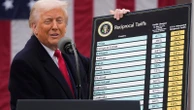Prepare to pay (even) more for your daily cup of joe: Coffee prices have spiked in recent months, primarily because of global supply issues, though U.S. tariffs are adding some heat up this market.
Coffee futures, the global benchmark for arabica coffee, have risen more than 33% since July and hit a nearly four-month high in late August as traders have become concerned about the prospect of a slump in coffee supplies coming out of major markets like Brazil and Vietnam amid volatile weather in these regions. Conab, Brazil’s crop forecasting agency, this week slashed the estimate for its 2025 arabica coffee crop by nearly 5% and warned that U.S. tariffs could drive further price gains.
The 50% tariffs that President Donald Trump imposed on Brazil took effect last month and put “upward pressure” on coffee prices, according to an August report from the International Coffee Organization.
Those factors are likely to mean that consumers will have to pay even more to make coffee at home or buy a cup on-the-go. Ground coffee prices hit a record high of $8.41 per pound in July, up 33% from a year ago, according to the latest figures from the Bureau of Labor Statistics. After eggs, coffee experienced the second-highest inflation rate in any category of the consumer price index in July.
J.M. Smucker, which owns Folgers and Café Bustelo, has raised coffee prices twice this year and is likely to do so again this winter as a result of Trump’s tariffs, according to reporting by The Wall Street Journal.
WEATHER VOLATILITY
Tariffs have become a new ingredient in a coffee market that’s been roiled by weather volatility in recent years. There have been severe droughts in both Brazil and Vietnam, and these two countries are the world’s top two coffee producers, according to Bernstein analysts.
But there could be some reasons to be optimistic that coffee prices will start to stabilize. Rains in Brazil could allay some of the concerns about the impact of the drought in the South American country, while the outlook from Vietnam has also improved as the country has forecasted a higher crop output for this year.
Price pressures “should be easing off” in the near term, Danilo Gargiulo, a senior research analyst at Bernstein, told CNBC. Improving weather and capital investment to boost productivity signal lower prices ahead, while the impact of tariffs on Brazilian imports may be somewhat limited for consumers who buy coffee from the major chains, he added.
BRAZIL-U.S. TRADE TALKS
Finally, there could be some hope for changes on the horizon in terms of Brazil-U.S. trade negotiations.
Luiz Inacio Lula da Silva, Brazil’s president, is convening a virtual meeting of BRICS nations next week to discuss Trump’s trade policy, according to Bloomberg. The Brazilian president has repeatedly called on Trump to negotiate on trade after Trump imposed the second-highest tariffs on the nation in retaliation for its prosecution of former President Jair Bolsonaro. But Lula has also authorized a retaliation process against Trump’s tariffs, in an attempt to bring the U.S. president back to the negotiation table.










No comments